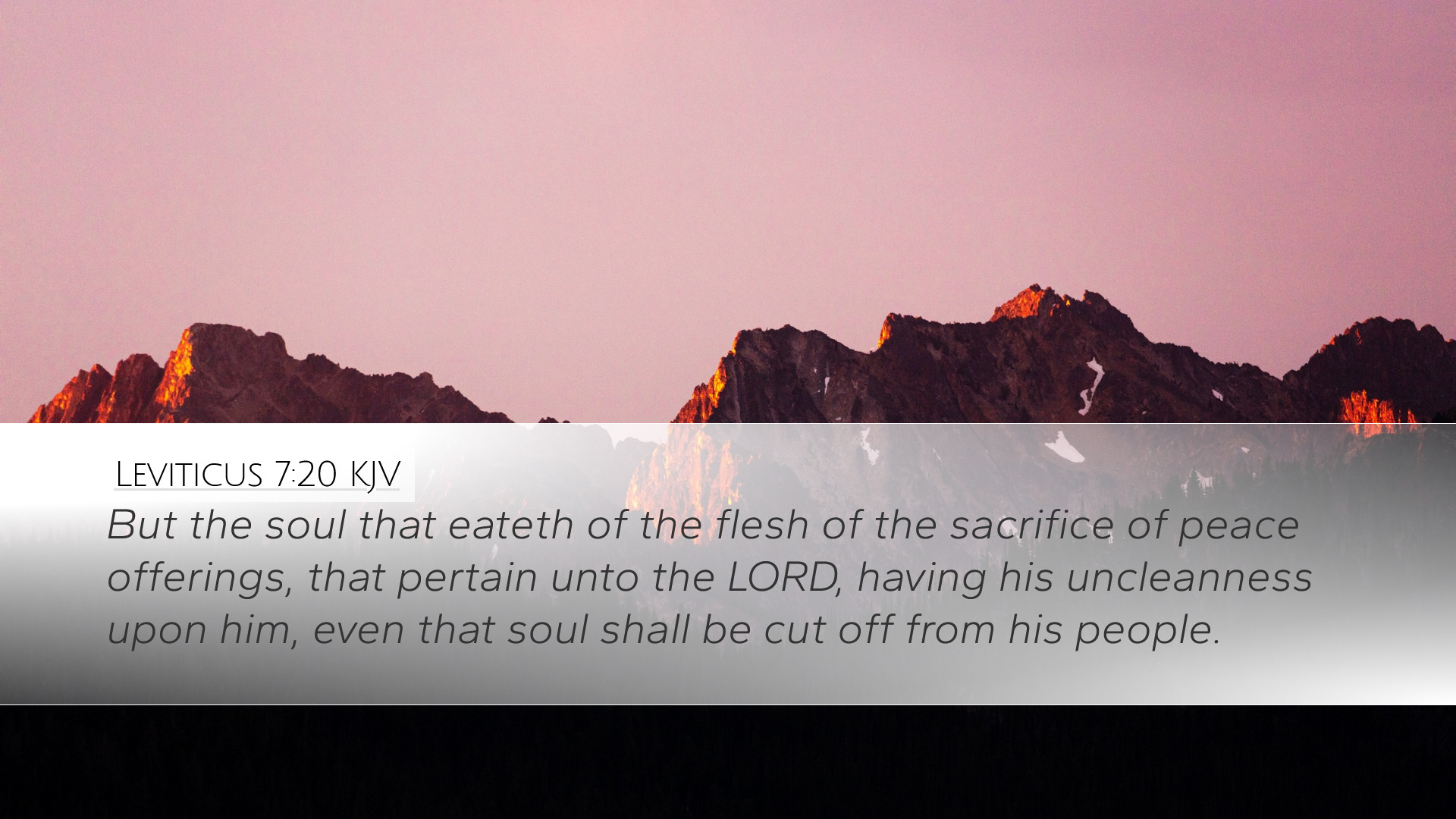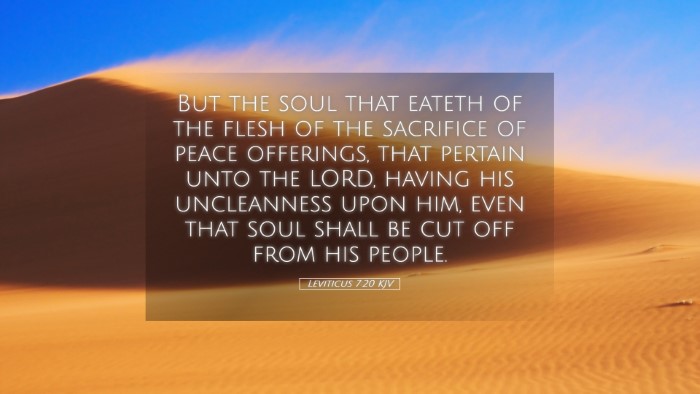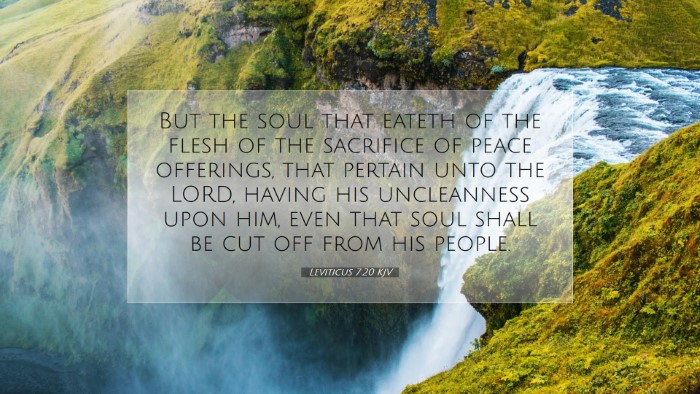Commentary on Leviticus 7:20
Verse: "But the soul that eateth of the flesh of the sacrifice of peace offerings, that pertain unto the Lord, having his uncleanness upon him, even that soul shall be cut off from his people." (Leviticus 7:20)
Introduction
This verse sits within the broader context of the laws regarding sacrifices delineated in Leviticus. It highlights the significance of purity when approaching God through sacrificial offerings. Understanding this passage is vital for grasping the sacredness of worship and the requirements for those participating in the covenant community.
Exegesis
The author of Leviticus conveys laws that govern the actions and responsibilities of the Israelites concerning sacrifices. Verses 19-21 elaborate on the conditions under which partaking in peace offerings is permissible or proscribed, particularly when it comes to the state of one’s ceremonial cleanliness.
Matthew Henry's Commentary: Matthew Henry emphasizes the gravity of appearing before the Lord in an unclean state. He notes that the sacrificial system was instituted not only as a means of atonement but as a way to reflect one's status before God. For Henry, this verse warns against casual or irreverent participation in sacred rituals.
Albert Barnes' Commentary: Barnes elaborates on the implications of "uncleanness" in this passage, explaining that it engaged ceremonial laws that stemmed from the Holiness Code. He teaches that sociocultural and spiritual separations are ingrained in these statutes; participation in fellowship offerings while unclean signifies a disregard for God's holiness and the serious nature of covenantal obligations.
Adam Clarke's Commentary: Clarke focuses on the repercussions of this disobedience, interpreting “cut off from his people” as a form of inevitable divine judgment. He argues that the phrase encompasses not only physical exclusion but also spiritual separation, which renders individuals bereft of the community’s sacrificial benefits, thus underscoring the vital link between communal worship and individual purity.
Theological Insights
Central to verse 20 is the theme of holiness, both of God and His people. It implies that divine acceptance is contingent upon a believer's state prior to engaging in worship. This teaching resonates with the concept of necessary purity and preparation for communion with God, urging believers to cleanse themselves of spiritual impurities.
- Divine Holiness: God’s purity is incomparable, and His people are expected to reflect that purity through their living.
- Community Responsibility: This passage illustrates the interconnectedness of community life in ancient Israel. One person’s uncleanness affects the whole community’s relationship with God.
- Grace in Light of Purity: While the law specifies strict adherence to purity codes, the New Testament reveals that Christ fulfills the law. Believers today are reminded of the implications of grace concerning our spiritual state and righteousness.
Practical Applications
This verse invites contemporary readers to consider their own approach toward worship and community within the church. It challenges believers to reflect on how personal spiritual states can influence corporate worship and the ethos of the community.
- Explore Purity: Consider personal holiness as an essential part of worship. Regular self-examination can foster deeper fellowship with God and other believers.
- Communal Integrity: Encourage accountability within the church community, fostering a safe environment for confession and reconciliation.
- Embrace Grace: Recognize that while the law emphasizes holiness, the grace afforded by Christ calls believers into a relationship marked by transformation, not merely external observance.
Conclusion
Leviticus 7:20 serves as a potent reminder of the seriousness of sacral responsibilities in the life of God’s people. The verse compels students, theologians, and pastors alike to appreciate the weight of holiness in worship. As history unfolds, the anticipation of a fulfilled sacrificial system in Christ urges the faithful toward both reverence and vibrant community life.


